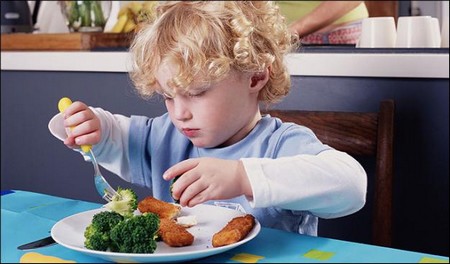An American medical practitioner Ben Feingold was the first to suggest a link between additives in children’s food and hyperactivity. He claimed that if an overactive, disruptive child eats only natural foods, without any added chemicals and without salicylate (which occurs naturally in tomatoes), then the child’s behavior will improve. In Feingold’s view, hyperactivity can be cured by putting the child on an additive-free diet.
Some parents have found this strategy effective. They discover that when their child eats foods containing artificial coloring, preservatives, excessive amounts of sugar, or mono-sodium glutamate (MSG), he becomes miserable and unpredictable, with sudden mood swings; he changes from being cheerful and happy to being a child out of control. But when the child follows an additive-free diet, his behavior settles within a few days.
Such arguments do not convince all the experts, however. For every apparent success involving an improvement in behavior following a change of diet, there are dozens of cases where a change of diet has no effect at all. A number of controlled studies have been carried out, but most of them conclude that diet is a relatively unimportant factor in causing hyperactivity.
A British study has found that food allergies can have a significant adverse effect on children’s behavior. When a group of children (categorized as hyperactive) was placed on an additive-free diet, the following results were observed:
- A quarter of the children improved so much that their parents described their behavior as “normal.”
- Over half of the children showed a significant decrease in their level of hyperactivity.
- Most of the children experienced an alleviation of related difficulties, such as headaches and pains.
The most pronounced changes in behavior resulted from eliminating foods containing tartrazine and other food colorings and preservatives, followed by cow’s milk and chocolate. Many parents and teachers have also noticed a link between the amount of sugar consumed and the activity levels and attention spans of small children.
You will have to make up your own mind on this issue. Bear in mind, though, that despite the lack of scientific evidence, a junk-free, balanced diet will not do your child any harm. Additives to be avoided include artificial colors, antioxidants, preservatives, MSG, and sulfites. Ask your pediatrician or family doctor to provide you with a comprehensive and detailed diet for your child. This diet will probably exclude candy, corn chips and potato chips, pretzels, soft drinks, cakes, and cookies. Keep your child on the diet for at least three weeks before you make an assessment of its effectiveness.
